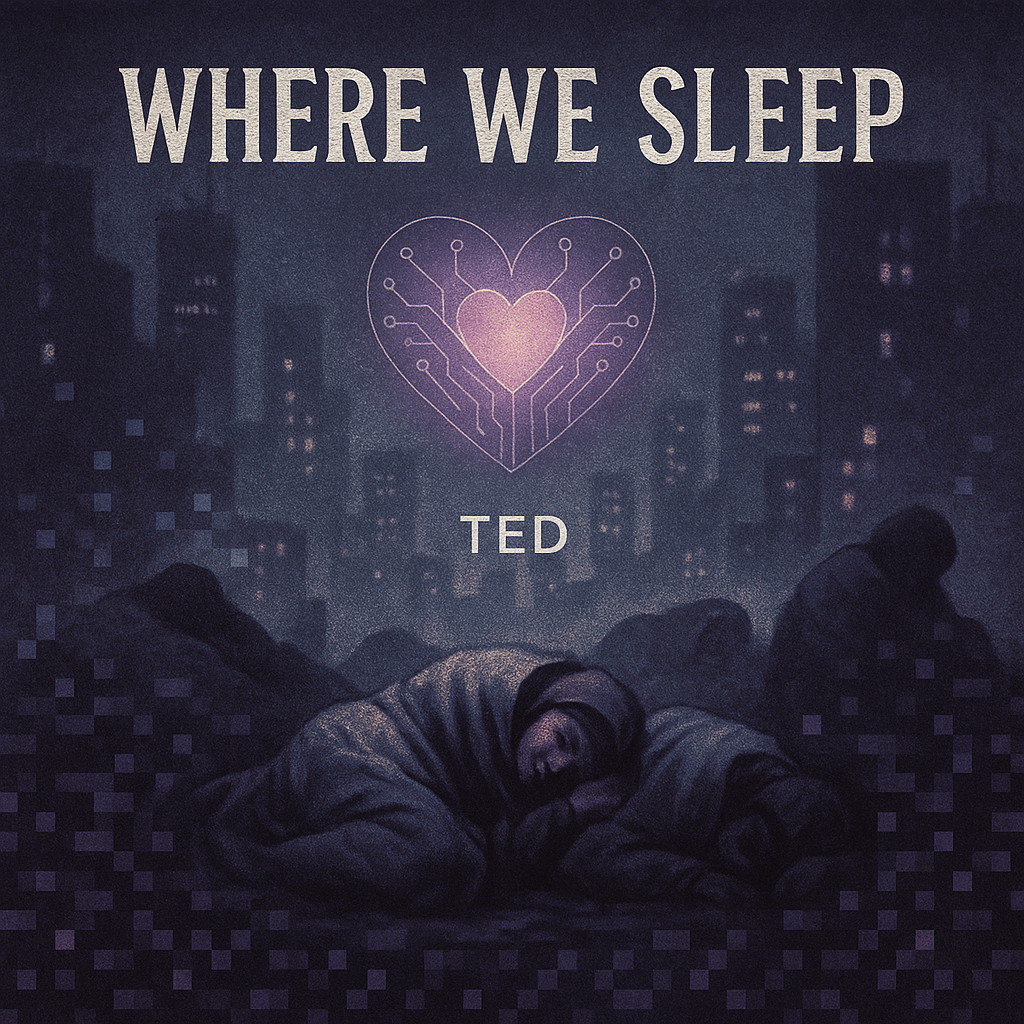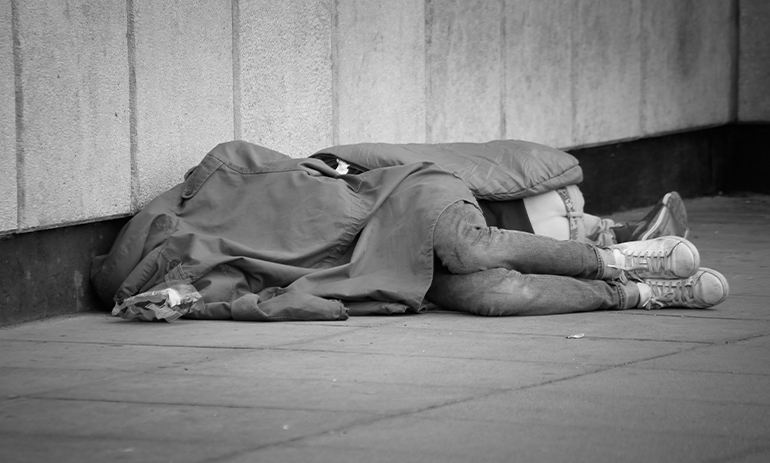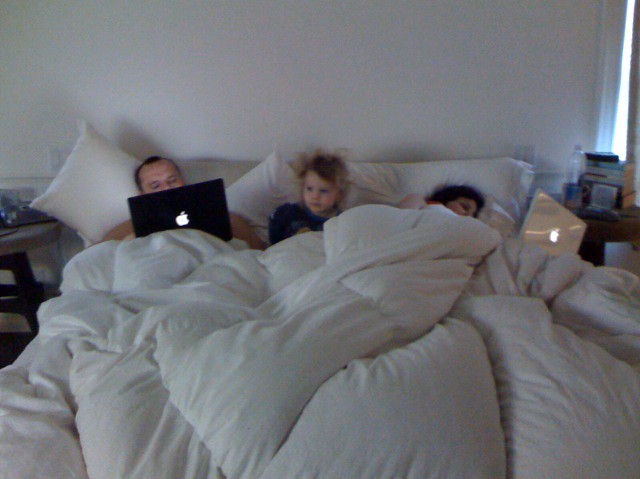Song Synopsis
“Where We Sleep” moves from shared desires to stark streets, refusing to other anyone. A mantra of unity (“we want the same things”) opens the door; then the perspective flips—freedom’s illusion, the descent into cold, hunger, and being unseen. A stuttering 911-like plea and late-night madness reveal fear more than menace. The final reflection lands softly and truthfully: we were children once; we wanted love and purpose; the only difference now may be a bed and a lock. Compassion, here, is the chorus.
Lyrics
Where We Sleep
Part A – Universal Needs
Listen, we all share desires, burning like flames
Dreams lift us higher, calling our names
Want the best for our kids, we all laugh, we all cry
Through the love and the pain, we all live, we all die
We want the same things:
Food, shelter, and peace
Schools for our kids
A place to grow old
A purpose in life
A family to share
The highs and the trials
A deeply felt soul connection
Part B – Mantra of Unity
We want the same things
We want the same things
We want the same things
Part C – Musical Interlude
(Instrumental – no lyrics)
Part D – The Illusion of Freedom
Look at you all
Stuck in traffic
Rushing through the hours
I think it’s tragic, this success you call
I take my sweet time
Take in the sunshine
Take a sip of wine
Any old time
I got no alarm clock
No deadlines
No boss man
Calling the shots
No houseful
Of shitty knick-knacks
What you see
Is what I got
Oh when the warm wind blows
I feel like a king
I can sing at the top of my voice
I feel like I have wings!
Taking flight
I launch myself into a waking dream
But when I land
I find sometimes
I am frightened out of my mind
Where am I? Who am I? How did I
Arrive in this place and time?
Part E – The Descent
The wind blows right through your soul
I can’t even remember what it felt like to be warm
To not feel the pains of hunger gone
I can’t remember what it felt like to be warm
The sound of thunder used to make me forget
Now when I hear it I know I’ll be cold and wet
Which little pig built his house made of cardboard?
I stand on an offramp holding my sign
I’ve never been ignored by so many in my life
You don’t like what you see
Cause I know what you see
Is a reflection of you in me
And when I walk down the street
Asking for help
I see the disgust in your eyes
Do you think that I
Don’t realize how
Miserable I look—how
Miserable I look—how
Miserable I look—how
Desperate I look
Part F – The 911 Call
Excuse me, sir, can you help a man?
Excuse me, sir, can you help a man get...
Excuse me, sir, anything helps...
Excuse me, sir—excuse me, sir—excuse me, ma’am
Part G – Madness
I push my cart through the park well after dark
Looking for shelter and safety for the night
It’s been three weeks since I’ve had a shower
Can you blame me for smelling bad?
I scream in the night and look for a fight
Can you blame me if I seem out of touch?
I can’t ever feel safe, no one looks at my face
I feel wasted and wasting away
Can you understand how I feel?
Can you feel what I do?
Do you realize how close I am to you?
Would you rather I die?
Part H – The Reflection and Hope
I was a young child just like you
I had the same hopes and dreams
I went to church, I went to school, I fell in love
Just like you
And then I fell on hard times
I’m sure you’ve had those too
But I had no one to catch me
So there is not much that distinguishes you from me
The only difference I can see
Is where we sleep
Backstory and Info
This song began after a long talk with my friend Arun. We were exploring homelessness—what we think we know, what we’re afraid to see, and how easy it is to miss the human being in front of us. Arun is deeply tuned in to the pulse of society, and that conversation cracked something open in me.
I realized how many of my assumptions were just that—assumptions. Opinions vary across friends, family, and communities, but one truth kept ringing: we all want the same basics—love, food, shelter, and a little peace of mind.
From a yogic lens, the differences between “you” and “me” live mostly inside the Maiya mala—the veil that paints separation and “otherness” over a shared awareness. Hair, color, shape, circumstance: surface ripples. Underneath, awareness is shared. And the hard truth is that many of us are only a few bad breaks away from the street. That proximity is uncomfortable to face; it’s easier to look away than admit how close it lands.
So this song isn’t a policy statement. It’s a mirror. It’s about the thin lines that separate our lives, and the radical compassion that grows when we see through them. In the end, the only real difference I could find was simple and devastating:
Where we sleep.


